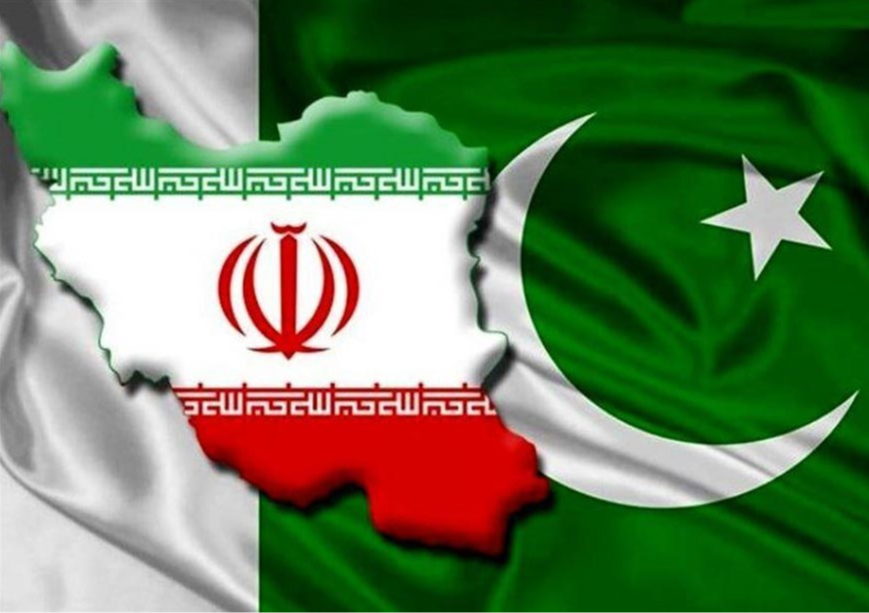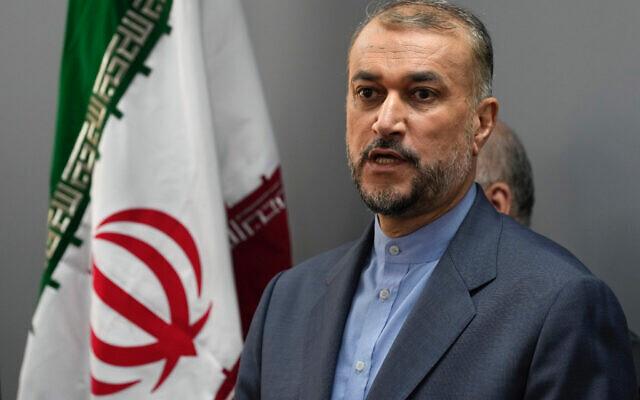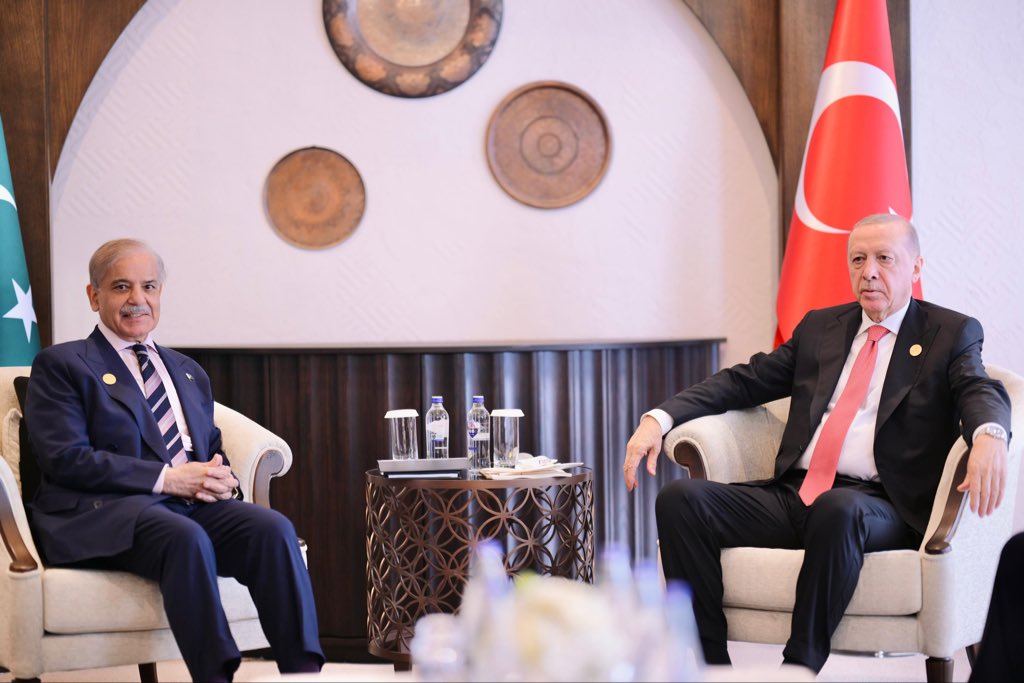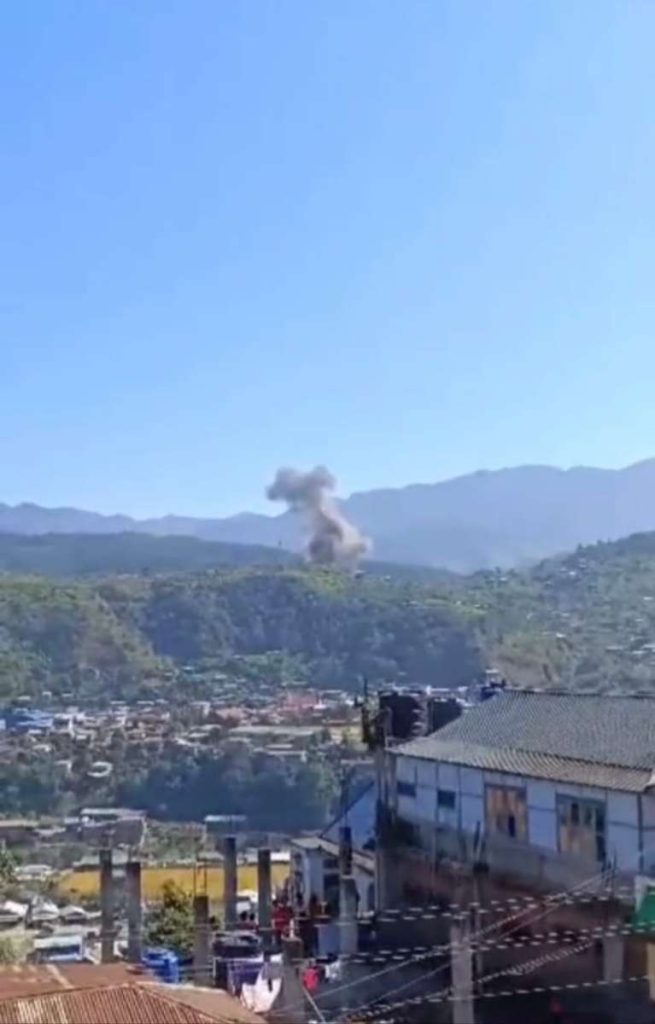Tensions escalated between the two nations following Islamabad’s retaliatory strikes inside Iran….reports Asian Lite News
Iranian Foreign Minister Hossein Amir-Abdollahian will visit Pakistan on January 29.
The announcement of the Foreign Minister’s visit to Pakistan comes after tensions escalated between the two nations following Islamabad’s retaliatory strikes inside Iran.
He will be travelling to Pakistan at the invitation of Pakistan Foreign Minister Jalil Abbas Jilani, according to Iran and Pakistan joint statement released by Pakistan’s Ministry of Foreign Affairs. The two nations have also agreed that the ambassadors of both nations will return to their respective posts by January 26.
The joint statement reads, “Following the telephonic conversation between the Foreign Ministers of Pakistan and the Islamic Republic of Iran, it has been mutually agreed that ambassadors of both countries may return to their respective posts by 26 January 2024.”
“At the invitation of Foreign Minister Jalil Abbas Jilani, Foreign Minister of the Islamic Republic of Iran, Hossein Amir Abdollahian will undertake a visit to Pakistan on 29 January 2024,” it added.
The tensions between the two nations escalated after Pakistan’s Ministry of Foreign Affairs in a statement said that it had undertaken a series of “highly coordinated and specifically targeted precision military strikes against terrorist hideouts” in Iran’s Siestan-o-Baluchistan.
“A number of terrorists were killed during the intelligence-based operation codenamed “Marg Bar Sarmachar,” Pakistan’s Ministry of Foreign Affairs said.
Pakistan’s action came after Iran carried out missile and drone strikes to destroy two “important headquarters” of Jaish al-Adl (Army of Justice) in Pakistan, which Islamabad said killed two children and injured three girls. Two “important headquarters” of Jaish al-Adl (Army of Justice) in Pakistan were “destroyed,” Al Arabiya News reported citing Tasnim News Agency.
Pakistan’s Ministry of Foreign Affairs said that in its engagements with the neighbouring country Iran over the last several years, Islamabad has consistently shared its serious concerns about the safe havens and sanctuaries enjoyed by Pakistani-origin terrorists who called themselves “Sarmachars” on the ungoverned spaces inside Iran.
Pakistan said it also shared multiple dossiers with concrete evidence of the presence and activities of these terrorists.
“However, because of a lack of action on our serious concerns, these so-called Sarmachars continued to spill the blood of innocent Pakistanis with impunity. This morning’s action was taken in light of credible intelligence of impending large-scale terrorist activities by these so-called Sarmachars,” it said.
The statement said, “This action is a manifestation of Pakistan’s unflinching resolve to protect and defend its national security against all threats. The successful execution of this highly complex operation is also a testimony to the professionalism of the Pakistan Armed Forces. Pakistan will continue to take all necessary steps to preserve the safety and security of its people which is sacrosanct, inviolable and sacred.”
Pakistan said it fully respects the sovereignty and territorial integrity of Iran and the strike’s sole objective was in pursuit of Pakistan’s own security and national interest which is paramount and cannot be compromised.
The Iranian Ministry of Foreign Affairs condemned Pakistan’s drone attack on non-Iranian villagers on the border of the two nations, calling it “unbalanced and unacceptable.”
It said Iran adheres to the policy of “good neighbourliness and brotherhood” between two nations and does not allow enemies to strain the ties between Tehran and Islamabad.
“The Ministry of Foreign Affairs of the Islamic Republic of Iran condemns Pakistan’s unbalanced and unacceptable drone attack on non-Iranian villagers on the border of the two countries,” the Iranian Ministry of Foreign Affairs said in a statement.
“At the same time, the Islamic Republic of Iran adheres to the policy of good neighbourliness and brotherhood between the two nations and the two governments of the Islamic Republic of Iran and Pakistan. It does not allow enemies to strain the amicable and brotherly relations of Tehran and Islamabad,” it added. (ANI)

Pakistan, Iran to Restore Full Diplomatic Ties
Days after Pakistan and Iran were on the verge of a major conflict, the two countries decided on Monday to restore full diplomatic relations with the return of ambassadors to their respective capitals later this week, a medis report said.
“Following the telephone conversation between the Foreign Ministers of Pakistan and the Islamic Republic of Iran, it has been mutually agreed that ambassadors of both countries may return to their respective posts by January 26,” said a joint statement simultaneously issued by Tehran and Islamabad, Express Tribune reported.
Also importantly, at the invitation of Foreign Minister Jalil Abbas Jilani, Foreign Minister of Iran, Hossein Amir Abdollahian, will undertake a visit to Pakistan on January 29, the statement added, the report said.
The two countries would decide the future course of action and work on a new mechanism to prevent the recurrence of events of the last week.
Pakistan and Iran may often boast about the “friendly and brotherly” relations, but underneath does exist certain issues that cause suspicion in both the capitals.
At the heart of the problem are the concerns both sides often expressed privately about the use of each other’s soil by certain terrorist groups.
Pakistan has longstanding concerns that Baloch terrorist outfits find refuge across the border in the Sistan-Balochistan province of Iran. Tehran, on the other hand, pointed a finger at anti-Iran militant groups such as Jaish al-Adl having hideouts in Balochistan province in Pakistan.
Iran gave the same justification for carrying out cross-border missile strikes under the pretext that it was aimed at Jaish al-Adl hideouts, Express Tribune reported.
Pakistan, in retaliation, conducted strikes and pounded with bombs what it said were the sanctuaries of Baloch terrorists. Iran admitted that those killed in Pakistani strikes were not Iranians.













